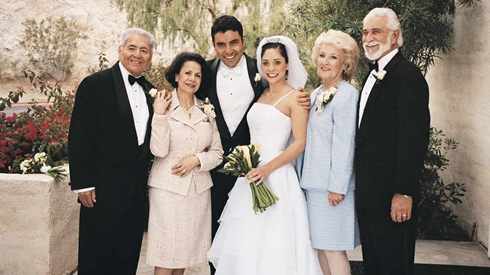 What do I owe my in-laws?That’s an interesting question. Another way to phrase it might be, “As a son-in-law or daughter-in-law, what’s required of me? What are my obligations, whether I feel like it or not, in relating to my spouse’s parents?”
What do I owe my in-laws?That’s an interesting question. Another way to phrase it might be, “As a son-in-law or daughter-in-law, what’s required of me? What are my obligations, whether I feel like it or not, in relating to my spouse’s parents?”
Put this way, it doesn’t sound like a very warm or relaxed relationship. It sounds more like your in-laws are a burden in your life. Perhaps you feel caught between trying to please them (or trying to avoid offending them) on the one hand, and just wanting to be yourself or wanting your own “space” on the other.
The first principle that applies here is that, if you’re a Christian, you owe your in-laws behavior that’s consistently Christian in character—as you do anyone else. This doesn’t ignore the reality that if your in-laws are “difficult” people, are controlling and manipulative, are emotionally or mentally dysfunctional, or don’t share your faith, this may be a particularly hard challenge. The problem is that they’re not just anyone. They’re connected to your spouse through genetics, history, and complex psychological dynamics.
If you have disagreements with your in-laws, your spouse may feel caught in the middle between parents and you. You, meanwhile, have obligations to in-laws and spouse—and children, if you have any.
If you feel your in-laws are intruding into your married life, the old saying, “Good fences make good neighbors,” may apply. In concert with your mate, set reasonable boundaries; ask that he or she firmly and kindly insist that your in-laws respect these limits.
“Honoring” one’s parents (Exodus 20:12) does require showing them patience, kindness, gentleness, and respect. This applies to in-laws, too. You may not even like them, but you need to choose to act in a loving manner toward them. For instance, you might choose to adopt their tradition of having an Easter egg hunt, despite the fact that you don’t want your kids to think the Easter bunny is real. Enjoying the family event is possible, even if you follow it with a reminder to the children about the real meaning of the holiday.
When you married, you also became part of another family with its own set of expectations. You need to recognize and respect those—within limits.
What are those limits? Here are three things that “honoring” your in-laws does not mean:
It doesn’t require that you submerge all your own feelings, desires, preferences, and needs in the service of “doing things their way.”
It doesn’t mean you must permit them to disrespect, control, or manipulate you for their own selfish ends.
It doesn’t entail “obeying” all their “parental” requests or requirements—which, in some instances with some in-laws, may get pretty crazy.
Sometimes the most honoring response is to diplomatically but firmly say, “No.” Letting in-laws split, manipulate, or control you by silently acceding to their nutty, neurotic, inappropriate demands isn’t necessarily showing Christian love.
In-law conflicts grow more complicated when a spouse seems to side with his or her parents and against his or her mate. The mate may rightly feel outnumbered or “ganged up on.”
This isn’t so much an in-law problem as a marital one. If one spouse remains too dependent upon his or her parents, that needs to be addressed in a straightforward way. If one spouse is blaming the in-laws for a disagreement the couple is experiencing, that should be dealt with, too.
If you’ve become engaged in a quiet (or not so quiet) war with your in-laws—and maybe also with your spouse—about these tangled issues, don’t let it erode your marriage further. Do the healthy thing and seek out a Christian therapist.
![]()


Be the first to comment on "In-Law Relationships By Phillip J. Swihart"